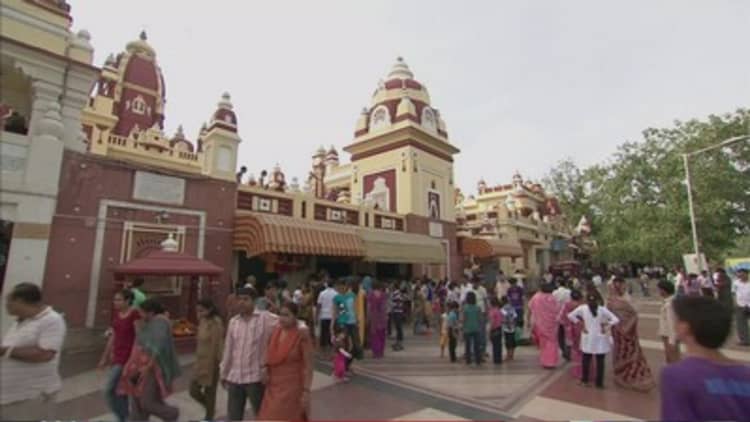
Efforts to curb pollution in India's sprawling capital region have sent some residents scurrying to an unlikely source: their mathematics text books.
That's because beginning January 1, the government of the national capital territory of Delhi (run by a different party to the ruling BJP at the center) proposes that cars be allowed to run on alternate days, depending on whether the last digit on the number plate is even or odd.
The numbers-based approach is part of a slew of measures announced by the territory's government to curb pollution; the government also plans to shutter some power plants and vacuum streets.
Internationally, there are a number of ploys used by governments to limit the number of cars on the roads. In Singapore, for instance, wannabe drivers must purchase a certificate of entitlement (COE) in order to own a vehicle and use road space for 10 years.
"A major step is that, particularly in winter when pollution is high, we will implement odd and even number of vehicle operation. We will make all efforts to start it from January 1. The next question: how will people travel? Alternative arrangements and additional transport arrangements will be made," Delhi's chief secretary K.K. Sharma said, according to The Indian Express.
"The next meeting will be held by the chief minister on December 8 and we will then decide whether we will observe this for two weeks or three weeks," Sharma said, according to the newspaper.
First-time visitors are often alarmed at the pollution in the city and thick smog that delays flights and trains is a common fixture during winters. The Pollutant Standards Index was 278 on Monday morning, indicating very unhealthy air.
Still, implementation will be a challenge given the sheer size of Delhi. The public transportation system, despite meaningful progress in recent years, remains underdeveloped compared with other major cities, which means residents are heavily reliant on road vehicles.
And there are many residents to cram onto that public transport. Delhi had more than 16 million inhabitants as of 2011 and 2.7 million registered cars at the end of March this year, according to government data. If some of the neighboring towns are included, the population in Delhi's urban areas would have been nearly 22 million, according to the 2011 census.
As the government grapples with these issues, residents have seen the funny side of the proposed move:


